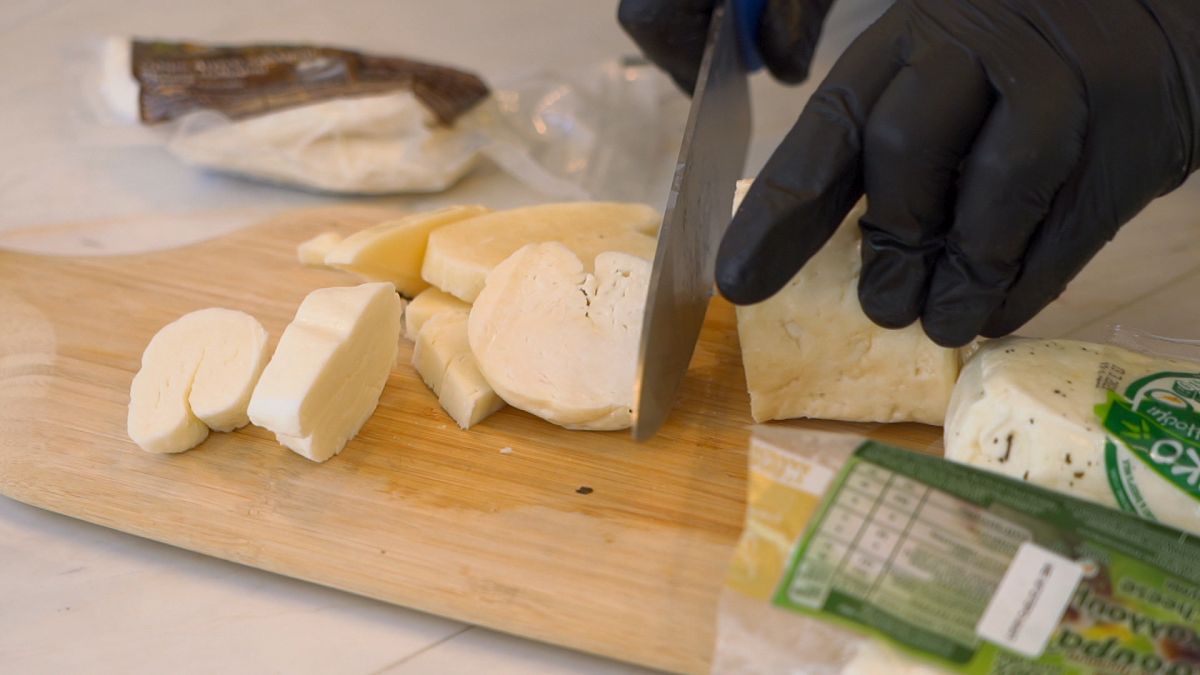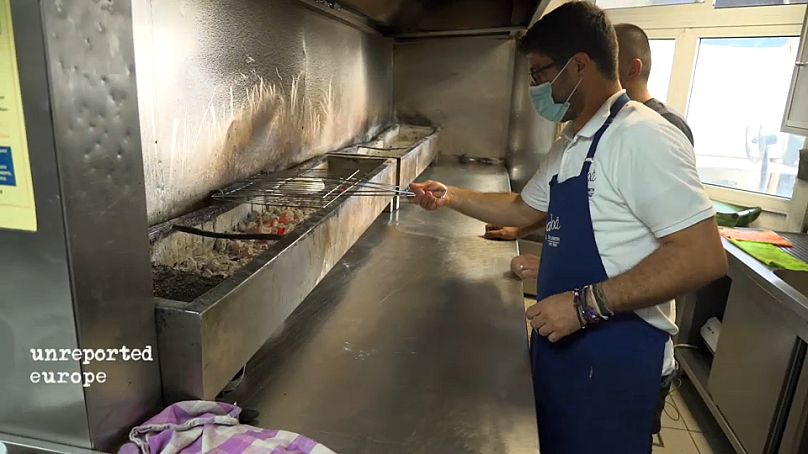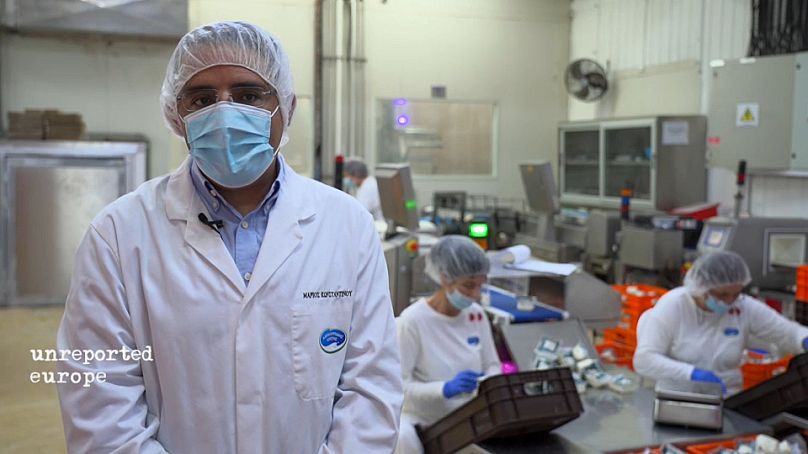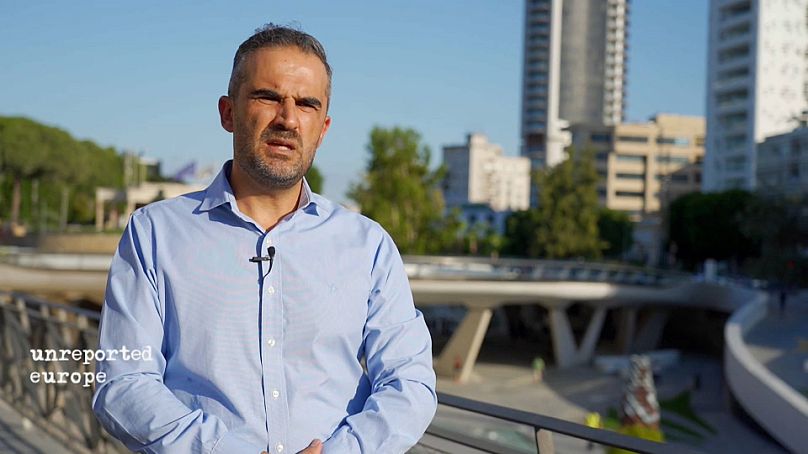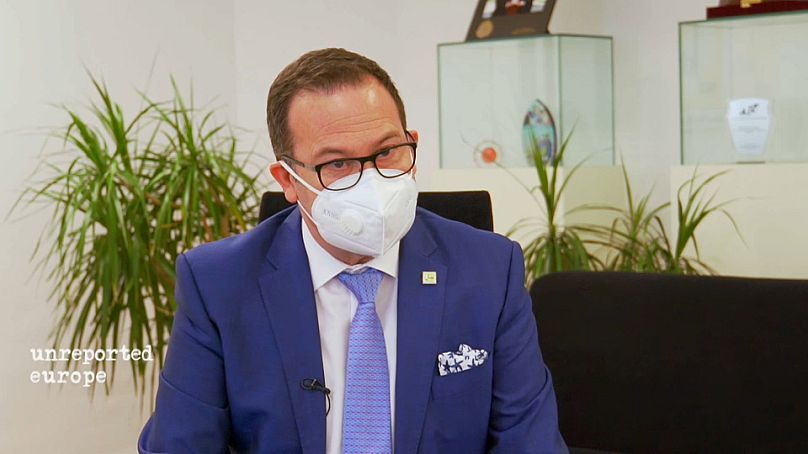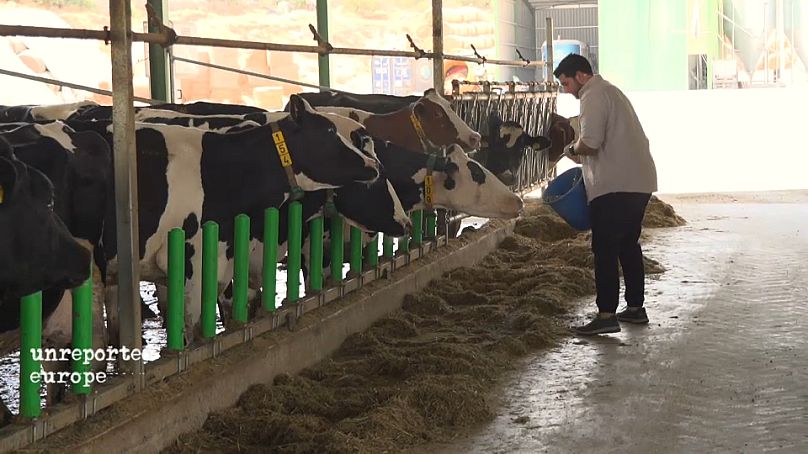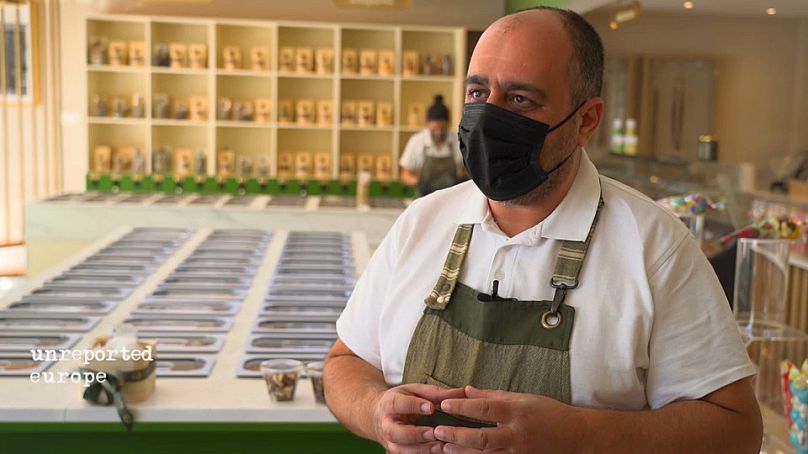Halloumi cheese in Cyprus is being given a Protected Designation of Origin label from the European Union, but this is causing diplomatic and economical challenges. We take a look at how this cheese may or may not be a unifying factor on the island.
Halloumi is not just a cheese, it is also a symbol of division and maybe even hope in arguably one of Europe's longest geopolitical conflicts.
A unique cheese
In the capital of Cyprus this rubbery, salty and versatile cheese is always on the menu. As Marinos, the owner of a tavern in Nicosia, says "halloumi means tradition to us, a very old tradition, centuries-old even".
Halloumi lovers on the island now have reason to celebrate. The European Union has awarded the cheese a 'Protected Designation of Origin' (PDO). It’s one of its top food quality labels.
From October 2021, when this status is enforced, only the cheese made on the island will be marketed abroad under that name. As the Republic of Cyprus' main export, the sector already provides some 20,000 jobs and now its market prospects are looking even more promising.
In one of the Republic of Cyprus' biggest halloumi factories, Charalambides Christis Dairy Products, 10,000 tons are produced every year.
An economic boost
Its managing director, Marios Konstantinou, tells us that "the label will provide absolute protection in the geographical areas where the PDO is recognised, in our case, that's the European Union". He believes that it will give the company "the resources to further increase the exports of halloumi to European Union member states, but also to grow further around the world."
However, this label has also left a bitter taste on the island. Divided since the Turkish occupation in 1974, the island has in fact received a dual PDO that includes halloumi and hellim, the name given to the cheese in the self-declared Turkish Cypriot Republic of Northern Cyprus, the northern part of the island not recognised by the international community.
Cheese diplomacy
The EU is endeavouring to bring the two communities together. This cheese diplomacy is difficult to swallow though for some Greek Cypriot producers who fear the north's cheaper raw materials and labour and its differing health standards.
Nevertheless, the Republic of Cyprus is standing by this dual label. Sokratis Sokratous is the Republic of Cyprus' government official who led the registration process. He says that "the international halloumi market has great potential". He believes that it can handle halloumi made by both Greek Cypriot and Turkish Cypriot producers.
He expects that the transition period will take some time, but the ministry will be monitoring it. "If our producers need support, of course, we will intervene", he adds.
What's the view across the UN buffer zone in the northern part of the island?
With or without a label, Turkish Cypriot producers are still unable to export directly to EU markets, as Europe’s only commercial partner on the island is the Republic of Cyprus.
Complex negotiations are underway, but some hellim producers accuse Cyprus of letting the situation stagnate.
The Gülgün Dairy Products factory manufactures 20 different dairy products, including milk, cream, butter and ice cream. It also produces around 6.5 tons of hellim a day and it’s mainly exported to Turkey and Gulf countries.
Its export manager, Ali Bayraktar, says that "halloumi does not belong to North or South or East or West Cyprus. Halloumi is a Cypriot product. It was produced before the Turkish and the Greek on this island".
According to him, there are 50 000 to 60 000 people in the halloumi business on the Turkish Cypriot side. He expects that when exporting to the EU begins, there will be more jobs and the income for these workers will get higher "because the European market is a high prize market."
Negotiations needed
Discussions with Greek Cypriot authorities and the European Union are currently being led by the Turkish Cypriot Chamber of Commerce. It represents 4500 local companies, 25% of them are from the agricultural and farming sector. Its president, Turgay Deniz, told us they are asking for understanding from their potential commercial partners.
"At the Chamber of Commerce, we believe that to successfully complete this entire process we need full cooperation from the European Union to set up the right supervising mechanisms. We keep demanding this full cooperation to solve Turkish Cypriot hellim producers' problems and to help them comply with EU regulations as well as animal, safety, hygiene and public health standards" he explains.
Evolving recipes
The label was also met with worried scepticism from Cypriot cow farmers. Most of the currently marketed halloumi contains 80% cow milk. By 2024 the label will push producers to manufacture the cheese in the more traditional way, using a 51% mixture of sheep and goat milk.
Farms like Andreas Kailas & Sons Ltd, which produces 4000 litres of cow milk a day, will suddenly find themselves in a difficult position. Andreas feels that the PDO is not in sync with the current market demands. According to him, all the halloumi products produced now, like halloumi slices, halloumi embedded with chili and halloumi burgers don't fit in with the PDO. He thinks that the government and the European Union need to give halloumi producers the tools to change the halloumi PDO to adapt to market demands.
A quality guaranty
Unlike farmers and producers, retailers see the new label as a win-win for their business and for their clients. They see it as a way to guaranty quality.
The delicatessen shop, Nuts Nuts Etc, in Nicosia primarily sells dried fruits and nuts, but it also jumped at the chance to include different halloumi varieties. They did this because, as its owner, Philippos says, "halloumi is like an ambassador of Cyprus. Tourists take a piece of halloumi home and they have the taste of the island with them forever."
The PDO cheese label is a hot topic of conversation right now and there may be difficulties setting it up. However, it could be the helping hand that the island needs to bring the north and the south together.
As Marinos, the tavern owner in Nicosia says, "halloumi in northern and southern Cyprus are different. But they also have things in common. Both communities can enjoy them in the same way. If they can help build bridges between the two communities, then this is good news".


